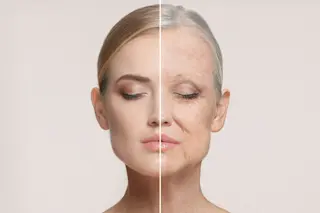We all get old. It’s a given. And the longer we live, the more likely we are to experience the decline and deficits of aging. But is there a way to slow down the aging process? Scientists think there may be, and they’ve taken some promising steps in that direction.
Sounds like a simple question, right? But like a lot of questions, it’s more complex than you might think. Aging is a complex process that scientists are just beginning to understand, explains Kenneth Boockvar, director of the Integrative Center for Aging Research at the University of Alabama at Birmingham Medical Center. We see signs of aging when we look in the mirror, but in the lab, scientists can see evidence of aging at the cellular level.
“Aging involves the accumulation of damage, including to DNA,” Boockvar says.
The cellular damage as well as the damage we can see without a ...















